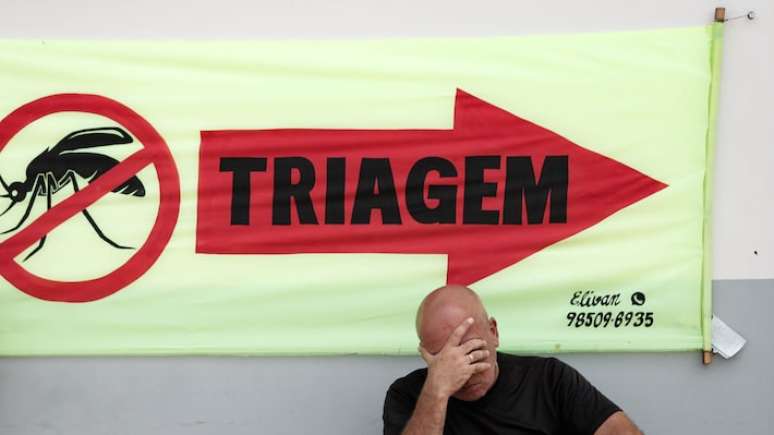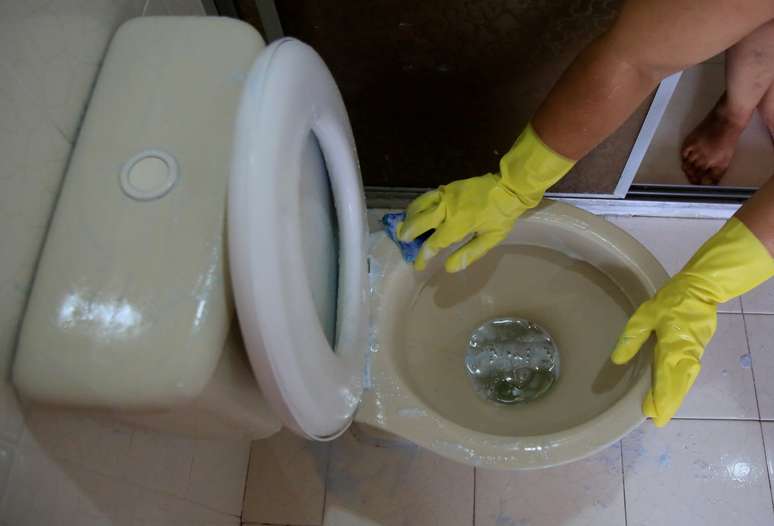The return of serotype 3 after a record season of cases raises alarm about the risk of reinfection
With the expansion of serotype 3 of dengue in Sao Paulo, the Secretary of Health said on Thursday 23, that there is a possibility that the State will face more serious cases of the disease in 2025. “This year we will have a great challenge,” said Eleuses Paiva at the opening of the Operations Center of Emergencies (COE), which will coordinate the enforcement actions Aedes aegizidengue vector, chikungunya AND Zika.
Last year, Sao Paulo recorded more than 2 million probable cases of denguethe highest number in its history. In 2025 there are already 29,604 confirmed cases and six deaths, and 31 municipalities have declared a state of emergency.
THE The secretary’s concern is also shared by other authorities present at the event, such as Esper Kallasdirector of Butantan Instituteand is linked to the existence of different serotypes (DENV-1, 2, 3 and 4) and how we react to the infection.
When dengue is contracted, the person is permanently immunized against the serotype that caused the infection, but not against others: which is why it is possible to contract the disease up to four times.
Furthermore, in a reinfection with a different serotype, our immune system goes into confusion. It misinterprets the new serotype as the same as the previous infection, triggering an exacerbated immune response.
In this circumstance, the body produces “obsolete” antibodies – effective only against the first serotype – which are unable to neutralize the new virus and, paradoxically, facilitate the replication and entry of the invader into the cells. As a result, there is a greater risk of severe forms of the disease.
Return of serotype 3
Last year, when the state reached the record number of infections, the most circulating serotypes were 1 and 2. Serotype 3 returns to the country after decades, which means that there is a large part of the population without defenses and, therefore, susceptible to contagion. infection. There is, in other words, great concern about the possible increase in reinfection cases.
“This is what distresses us. Therefore, perhaps this year we will have more cases of severe dengue. This is why clinical management is extremely important,” Paiva said at the event, which brought together municipal health secretaries.
In fact, although there is no specific medicine or therapy for dengue, the deaths are considered preventable. The good evolution of the patient depends on timely identification of alarm signals, which indicate a worsening of the case, but also the speed in starting treatment, focused above all on the patient’s hydration.
According to Regiane de Paula, director of the São Paulo Disease Control Coordination, serotype 3 re-emerged in the state last year “quite rapidly.”
When asked about the proportion of infections caused by DENV-3, he said he did not have the proportion. “It’s not even epidemiologically sound for us to quantify it at this point. But I know where it comes from,” he said.
“It is located in the northwestern region of São Paulo, São José do Rio Pretoand it will start to decrease, because it’s natural,” Regiane said. “There’s already some of it in the city of Sao Paulo, even in the metropolitan region.”
State action
The meeting was characterized by emotion in front of the announcement of the start of production of the Butantan dengue vaccine. The institute’s expectation is to produce 1 million doses in 2025 and another 100 million over the next three years.
The immunizer, however, is not yet registered in the archive National Health Surveillance Agency (Anvisa). The request is being examined by the body e The expectation is that the opinion will be made public by mid-March.
Additionally, the vaccine available in the country, Qdenga, from Japanese pharmaceutical company Takeda, has limited production and limited distribution across the country. Unified Health System (SUS).
This is how the authorities made it clear no mass vaccination is planned for 2025, in line with the position of the Ministry of Health.
This means that the fight against dengue in São Paulo must focus on traditional measures, such as raising awareness about eliminating mosquito breeding sites – most of which are located in domestic areas – and the use of insecticides.
Governor Tarcísio de Freitas (Republican) promised to send R$ 228 million to the municipalities by Friday 24th, so that they can invest in these measures. Part of the amount refers to the advance of the fixed portion of the SUS São Paulo Municipal Management Incentive (IGM SUS Paulista).
Source: Terra
Ben Stock is a lifestyle journalist and author at Gossipify. He writes about topics such as health, wellness, travel, food and home decor. He provides practical advice and inspiration to improve well-being, keeps readers up to date with latest lifestyle news and trends, known for his engaging writing style, in-depth analysis and unique perspectives.







![Tomorrow we belong to: What awaits you in the 2054 episode of Thursday on October 16, 2025 [SPOILERS] Tomorrow we belong to: What awaits you in the 2054 episode of Thursday on October 16, 2025 [SPOILERS]](https://fr.web.img6.acsta.net/img/3f/3b/3f3b56983d580fbe5136143378b45a29.jpg)
